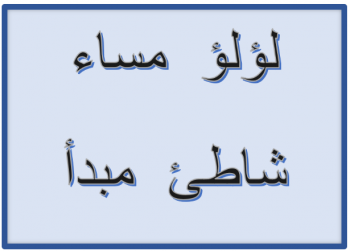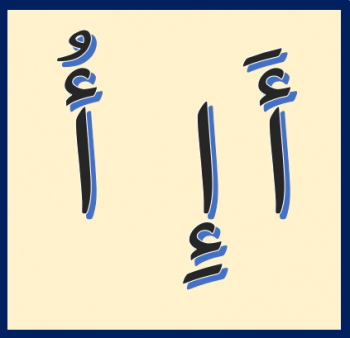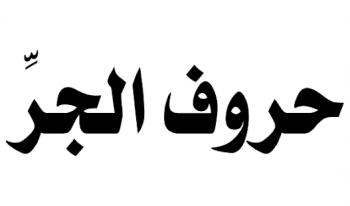Archive by Author
Case marking and agreement in verbal sentences Posted by aziza on Jul 28, 2019

In this post, we learn how to case mark verbal sentences. The verbal sentence (الجملة الفعلية) is a sentence that begins by a verb. The verbal sentence has two main components: the verb (الفعل), the subject (الفاعل), especially if the verb is non-transitive. If the verb is transitive, there is also a third element, i.e. …
Case marking of nominal sentences Posted by aziza on Jun 29, 2019

Case marking (الإعراب) is a very important grammatical concept in Arabic. In this post, we learn how to case mark nominal sentences. The nominal sentence (الجملة الإسمية) is a sentence that begins by a noun or a pronoun. The nominal sentence has two main components: the subject (المبتدأ) and the predicate (الخبر). Both parts of…
Laylat Al-Qadr Posted by aziza on May 26, 2019
It is the holy month of Ramadan, and today is the 21st of Ramadan, so we started the last ten days of the holy month. The last ten days are particularly important for Muslims because they include ليلة القدر ‘the Night of Decree’ or ‘the Night of Destiny’. This is a very special night for…
Rules for writing final hamza Posted by aziza on Apr 25, 2019

In this post, I write about the rules for writing hamza (ء) in Arabic at the end of the word. Just like medial hamza, the writing of final hamza depends on how it is vowelled and how the letters before it are vowelled. In this post, I will describe the most important rules. Final Hamza…
Rules for Writing Medial Hamza Posted by aziza on Mar 25, 2019

In this post, I writing about the rules for writing hamza (ء) in Arabic in the middle of the word. This is one of the questions that many of my students ask. As a general rule, the writing of medial hamza depends on how it is vowelled and how the letters before and after it…
Rules for writing Hamza Posted by aziza on Mar 1, 2019

Hello again Arabic Blog readers! Apologies for not posting for a while! In this post, I write about the rules for writing hamza (ء) in Arabic. This can be a very confusing aspect for learners of Arabic. As a general rule, hamza is often written with alif (أ) when it is used a consonant, e.g…
Tricky Prepositions Posted by aziza on Sep 24, 2018

Prepositions can be a very tricky aspect of learning a foreign language. Often, we find correspondence between languages in the basic meaning and usage of certain prepositions, e.g. in Arabic (في) usually translates into (in) in English and (على) usually translates into (on) in English. However, this is not always the case, as there are…


